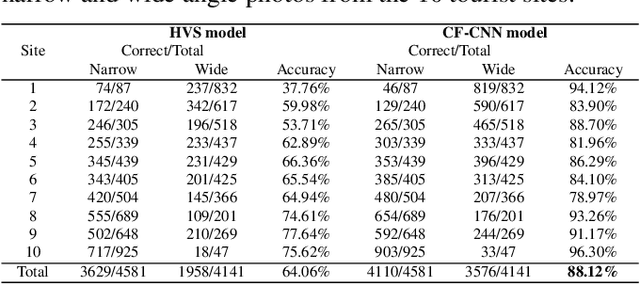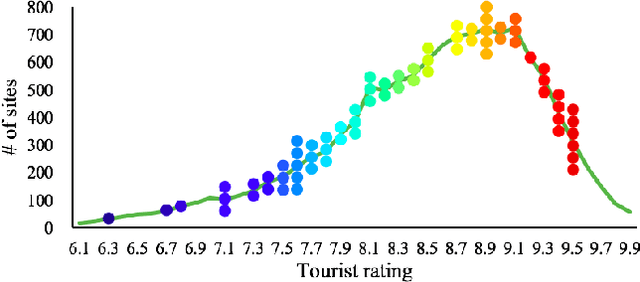Song Tong
Department of Psychology, Tsinghua University
Potential of large language model-powered nudges for promoting daily water and energy conservation
Mar 14, 2025Abstract:The increasing amount of pressure related to water and energy shortages has increased the urgency of cultivating individual conservation behaviors. While the concept of nudging, i.e., providing usage-based feedback, has shown promise in encouraging conservation behaviors, its efficacy is often constrained by the lack of targeted and actionable content. This study investigates the impact of the use of large language models (LLMs) to provide tailored conservation suggestions for conservation intentions and their rationale. Through a survey experiment with 1,515 university participants, we compare three virtual nudging scenarios: no nudging, traditional nudging with usage statistics, and LLM-powered nudging with usage statistics and personalized conservation suggestions. The results of statistical analyses and causal forest modeling reveal that nudging led to an increase in conservation intentions among 86.9%-98.0% of the participants. LLM-powered nudging achieved a maximum increase of 18.0% in conservation intentions, surpassing traditional nudging by 88.6%. Furthermore, structural equation modeling results reveal that exposure to LLM-powered nudges enhances self-efficacy and outcome expectations while diminishing dependence on social norms, thereby increasing intrinsic motivation to conserve. These findings highlight the transformative potential of LLMs in promoting individual water and energy conservation, representing a new frontier in the design of sustainable behavioral interventions and resource management.
Automating Psychological Hypothesis Generation with AI: Large Language Models Meet Causal Graph
Feb 22, 2024Abstract:Leveraging the synergy between causal knowledge graphs and a large language model (LLM), our study introduces a groundbreaking approach for computational hypothesis generation in psychology. We analyzed 43,312 psychology articles using a LLM to extract causal relation pairs. This analysis produced a specialized causal graph for psychology. Applying link prediction algorithms, we generated 130 potential psychological hypotheses focusing on `well-being', then compared them against research ideas conceived by doctoral scholars and those produced solely by the LLM. Interestingly, our combined approach of a LLM and causal graphs mirrored the expert-level insights in terms of novelty, clearly surpassing the LLM-only hypotheses (t(59) = 3.34, p=0.007 and t(59) = 4.32, p<0.001, respectively). This alignment was further corroborated using deep semantic analysis. Our results show that combining LLM with machine learning techniques such as causal knowledge graphs can revolutionize automated discovery in psychology, extracting novel insights from the extensive literature. This work stands at the crossroads of psychology and artificial intelligence, championing a new enriched paradigm for data-driven hypothesis generation in psychological research.
Exploring the Frontiers of LLMs in Psychological Applications: A Comprehensive Review
Jan 06, 2024Abstract:This paper explores the frontiers of large language models (LLMs) in psychology applications. Psychology has undergone several theoretical changes, and the current use of Artificial Intelligence (AI) and Machine Learning, particularly LLMs, promises to open up new research directions. We provide a detailed exploration of how LLMs like ChatGPT are transforming psychological research. It discusses the impact of LLMs across various branches of psychology, including cognitive and behavioral, clinical and counseling, educational and developmental, and social and cultural psychology, highlighting their potential to simulate aspects of human cognition and behavior. The paper delves into the capabilities of these models to emulate human-like text generation, offering innovative tools for literature review, hypothesis generation, experimental design, experimental subjects, data analysis, academic writing, and peer review in psychology. While LLMs are essential in advancing research methodologies in psychology, the paper also cautions about their technical and ethical challenges. There are issues like data privacy, the ethical implications of using LLMs in psychological research, and the need for a deeper understanding of these models' limitations. Researchers should responsibly use LLMs in psychological studies, adhering to ethical standards and considering the potential consequences of deploying these technologies in sensitive areas. Overall, the article provides a comprehensive overview of the current state of LLMs in psychology, exploring potential benefits and challenges. It serves as a call to action for researchers to leverage LLMs' advantages responsibly while addressing associated risks.
Happy Travelers Take Big Pictures: A Psychological Study with Machine Learning and Big Data
Sep 22, 2017



Abstract:In psychology, theory-driven researches are usually conducted with extensive laboratory experiments, yet rarely tested or disproved with big data. In this paper, we make use of 418K travel photos with traveler ratings to test the influential "broaden-and-build" theory, that suggests positive emotions broaden one's visual attention. The core hypothesis examined in this study is that positive emotion is associated with a wider attention, hence highly-rated sites would trigger wide-angle photographs. By analyzing travel photos, we find a strong correlation between a preference for wide-angle photos and the high rating of tourist sites on TripAdvisor. We are able to carry out this analysis through the use of deep learning algorithms to classify the photos into wide and narrow angles, and present this study as an exemplar of how big data and deep learning can be used to test laboratory findings in the wild.
 Add to Chrome
Add to Chrome Add to Firefox
Add to Firefox Add to Edge
Add to Edge